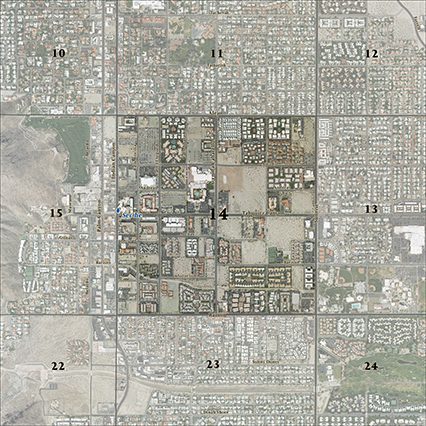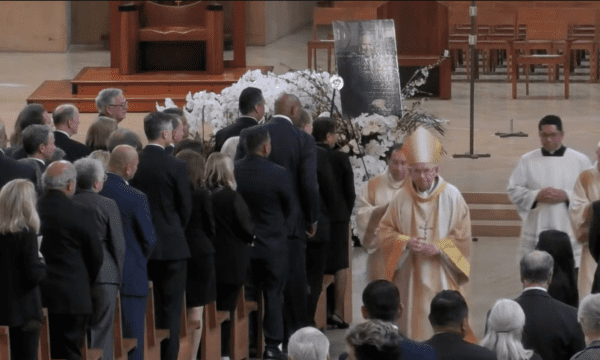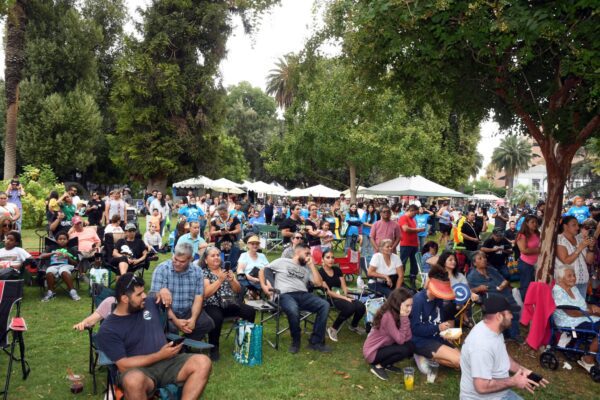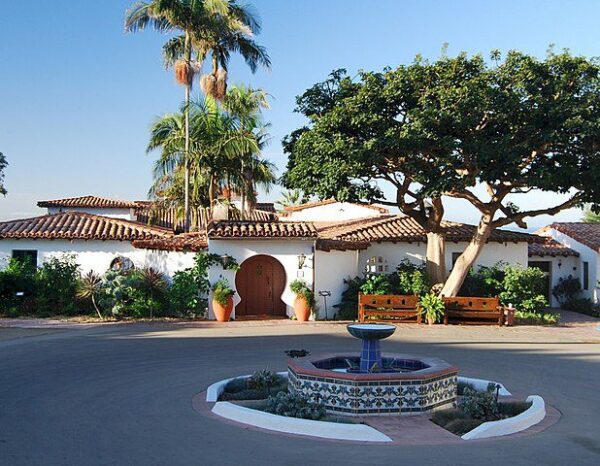By Kristy Ramirez
A one-year agreement with Columbia University to quantify the harm caused to Section 14 residents evicted from 1954-66, which their attorney claims is up to $2 billion, was rejected Thursday evening as a majority of Palm Springs City Council members instead want to reissue a request for proposals.
The proposed agreement would have paid Columbia University up to $502,304 to research the historical context of the city’s involvement in the Section 14 evictions as well as identifying the impacted members, sharing the findings through community meetings, and ultimately to recommend policies on possible reparations for the City Council to vote on, according to Linda Mann, the adjunct professor at Columbia University’s School of International and Public Affairs who would have been the project’s manager.
“We have a through-line in which we look at history, the research, the historical context and then look at impact and then think about ways to move forward in a community,” Mann said. “The ways that a community can move forward that is healing for all parties and creates a space of reconciliation.”
Council members Ron deHarte and Lisa Middleton along with Mayor Pro Tem Jeffrey Bernstein voted against approving the agreement, stating that they instead want to reissue an amended request for proposals to include gathering historical context about the city’s involvement in the evictions before quantifying the reparations.
“I think the agreement that everybody can make is that they want the facts heard. … I do not think that this proposal, as it was actually requested, is coming up with really just historical context and objective facts about what happened,” Bernstein said. “I would like to come up with something that actually works. This is not something that I want to drag out forever.”
Councilwoman Christy Holstege said during the meeting she was “disappointed in this outcome.”
“We’re almost six months out, it’s just adding many, many months to this process,” said Holstege, who was joined by Mayor Grace Elena Garner in voting to approve the agreement. “I would have very much liked to see us move forward. The applicant is very qualified. You’re not going to find someone who is involved in this work who’s going to be qualified who’s not an advocate.”
Columbia University was one of two applicants in the request for proposals, which was issued in November, and was the highest scoring applicant with extensive experience in handling reparations for various other communities, according to the report.
Section 14, a one-square-mile neighborhood owned by the Agua Caliente Band of Cahuilla Indians, was the city’s primary residential area for Mexican Americans and Blacks from 1930 until 1965. The evictions began in late 1954 and continued through 1966. An estimated 200 homes were destroyed in the mass eviction process, according to the city.
A resolution approved by the council two years ago stated that “Mayor (Frank) Bogert and Palm Springs civic leaders persecuted their lower-income constituents who resided on the land owned by local tribal members. Attempting to dispossess the Indians of their tribal lands, and erase any blighted neighborhoods that might degrade the city’s resort image, Palm Springs officials developed and implemented a plan that included having non-Indian conservators appointed by a local judge to manage the Indians’ land claiming they were unable to manage it for themselves. The successful implementation of this plan resulted in the removal of the city’s people of color and restructured the race and class configuration of the city.”
Palm Springs formally apologized for the evictions in September 2021, and the City Council asked its staff to develop proposals for possible economic investments that could act as reparations.
The city also removed a statue of Bogert, Palm Springs’ mayor from 1958-66 and 1982-88, from the front of City Hall.







